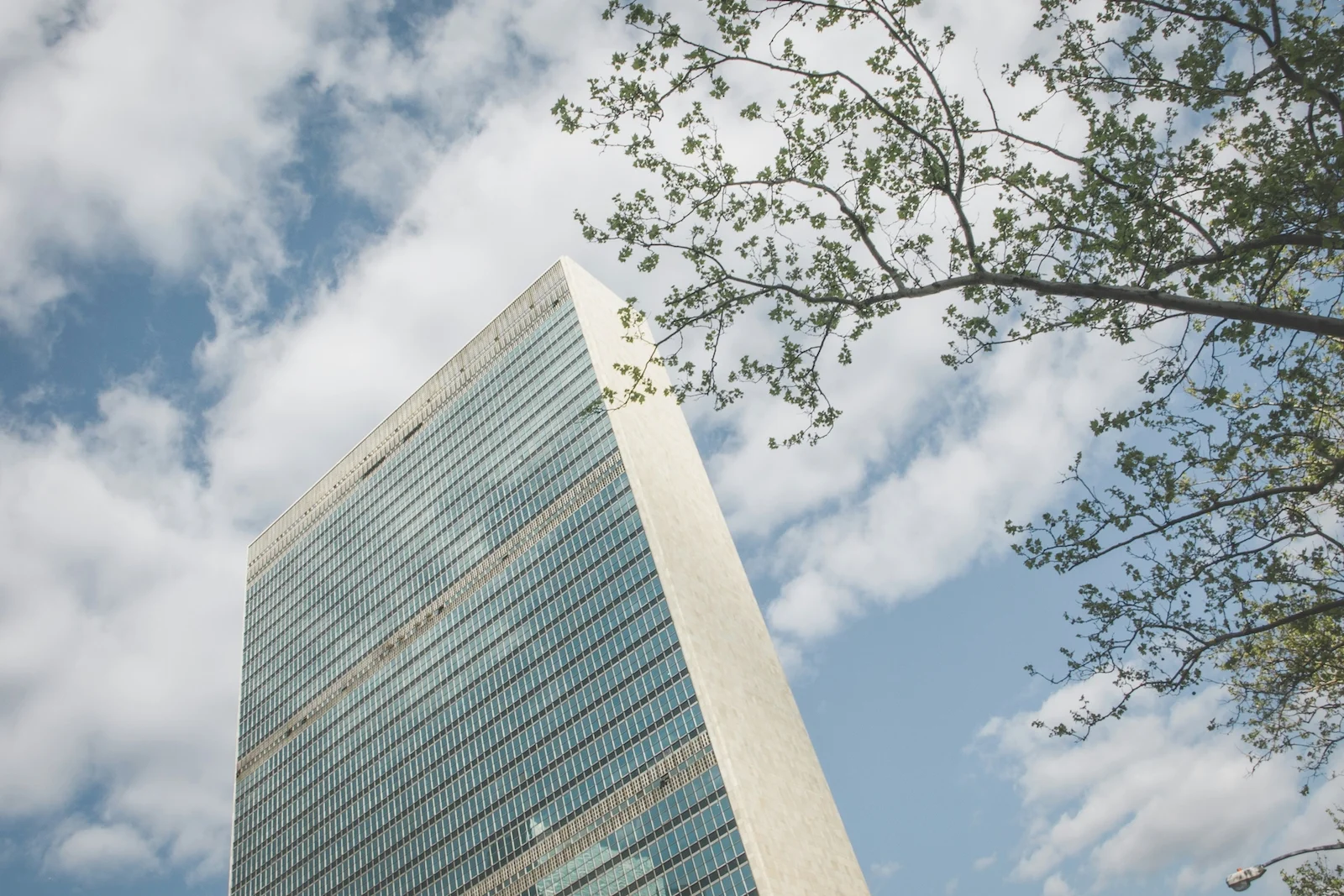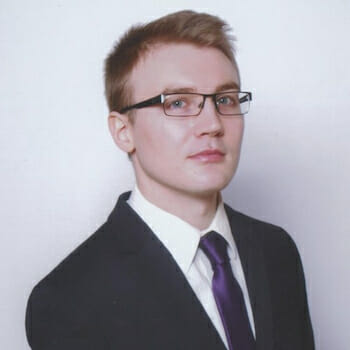
Inside the UN: A Young Diplomat’s First Look at Global Governance
Sarah Sydra Anissa Faraoun, who holds a Bachelor’s degree in Applied Human Sciences, recently completed a three-week internship at the UN Office in Geneva through U.P.I.C.E., under the mentorship of Ambassador David Fernández Puyana. Raised in a diplomatic household, Faraoun found the UN’s atmosphere both welcoming and intellectually vibrant. She was particularly struck by a decolonization conference and a high-level session on Israel-Iran tensions—moments that underscored the weight of global diplomacy.
While not actively participating in protests, she witnessed peaceful demonstrations and came away convinced that young voices are too often sidelined in international affairs. A passionate advocate for diplomacy and global engagement, she admires the work of Pascal Boniface and draws inspiration from literature on personal development. As UN budget cuts loom, she’s especially attuned to the uncertain future of unpaid internships and the accessibility of such opportunities.
Scott Douglas Jacobsen: Could you walk us through your personal and academic background? What drew you to the United Nations, and how did you secure this internship opportunity?
Sarah Sydra Anissa Faraoun: I currently hold a Bachelor’s degree in Applied Human Sciences. As part of the graduation requirements for my degree, I was required to complete a three-week internship, totaling 90 to 105 hours. I was fortunate to undertake this internship at the United Nations Office in Geneva, in collaboration with U.P.I.C.E. (Unión de Promoción de la Identidad y Cultura Española), thanks to the support of Ambassador David Fernández Puyana. The internship lasted three weeks.
Jacobsen: Do you come from a family with a history in diplomacy or international affairs?
Faraoun: Not specifically with the United Nations, but I have always been in a diplomatic environment thanks to my parents, who are both Algerian diplomats. My father served in administrative posts in Paris, Tunisia, and Brussels. I was born in Tunisia and lived there for four years. We then moved back to Algeria for two years before relocating to Brussels for five years. Later, my father was again posted to Paris. Currently, my mother is serving as a consul in Grenoble, France, and my father is the Director General of Finance at the Algerian Ministry of Foreign Affairs. Growing up in this environment has constantly exposed me to international diplomacy and enriched my understanding of global affairs.
Jacobsen: Having spent nearly three weeks immersed in the UN’s Geneva operations, what patterns or dynamics have stood out to you—whether in the formal sessions or the day-to-day environment?
Faraoun: Yes, I just completed my internship at the United Nations. It ended on July 9th and began on June 16th, which aligns with the 59th session of the United Nations Human Rights Council, currently taking place at the UN Office in Geneva. One noticeable trend is the collegial and international atmosphere. I found it easy to engage with representatives and meet new people. Everyone is very open and welcoming, even with the cultural and linguistic differences we all bring to the table.
Jacobsen: Were there particular moments during the Human Rights Council or related events that left a lasting impression on you?
Faraoun: Yes, one moment that stood out was a session discussing the current tensions in the Middle East, particularly regarding the situation involving Israel and Iran. A high-level representative delivered a speech that drew significant attention from delegates and attendees. It was a moment that underscored the gravity of the geopolitical issues discussed at the UN and left a lasting impression on me.
Jacobsen: Did any specific speeches resonate with you—either for their content, delivery, or the issues they spotlighted?
Faraoun: Speeches that stuck with me? The first one I remember was during a side event—a conference on decolonization. It focused primarily on the Sahrawi people. We had the opportunity to hear from a lawyer, a professor, the ambassador of Tanzania, I believe, and an activist. It was the activist’s speech that left the most profound impression on me. She shared that her husband had been imprisoned for ten years. Her testimony was incredibly moving. That was one of the speeches that resonated with me the most. There were others during different conferences. I would also say that it was deeply impactful when speakers addressed topics such as the right to education for women and human rights in Afghanistan.
Jacobsen: On my way to the UN, I came across a one-person protest. Have you noticed any larger or more significant demonstrations, either near the UN complex or elsewhere in Geneva? Or has the atmosphere remained largely calm?
Faraoun: By the way, I was invited to participate in one. Representatives from various associations encourage participation. However, I did not have the chance to join or fully witness a demonstration myself. I did pass by several protests that were held in front of the Palace of Nations. They were relatively calm.
Interestingly, the ambassador shared some information with me—not quite an anecdote, but a fact—about the fountains located directly in front of the palace. They are designed to prevent mass gatherings, helping to limit and control the size of demonstrations. So, it is good to know that this feature serves a purpose in maintaining order.
Jacobsen: From your vantage point, how would you characterize the way disagreements are handled between high-level international representatives during proceedings at the UN in Geneva?
Faraoun: Disagreements are generally handled quite diplomatically. Yes, they are addressed respectfully and with decorum. The key is always to seek a resolution to the issues at hand. That is the essence of diplomacy.
Currently, I am looking forward to an event primarily organized by Algeria, which will take place tomorrow—Friday, June 27th—from 12:00 to 1:00 p.m. at Place des Juges Femmes, within the Algerian delegation. As an Algerian myself, I feel directly involved and eager to hear what will be discussed, what ideas will be presented, and what concerns will be raised.
Jacobsen: The UN is facing a budget shortfall, which has already led to cuts across various programs. Without getting into the politics behind it, what do you think the implications might be for internships, volunteer roles, and job opportunities for young people seeking a future in international work?
Faraoun: It could affect future internship opportunities. For example, in my situation, I am not paid. Therefore, I believe that for unpaid internships, the impact may not be significant—as long as the internship remains unpaid, opportunities may still be available.
Jacobsen: Over the past few weeks, what kinds of comments, concerns, or reflections have you heard from other participants or observers?
Faraoun: I have not necessarily heard frequent comments. It was quite varied. Opinions differ—so yes, quite varied. I do not have any particular frequent comments that come to mind.
Jacobsen: Do you have any favorite quotes that speak to internationalism, justice, or peace—words that have guided or inspired you during your time here?
Faraoun: A favourite quote? I am thinking…I am trying to recall the books I have had the opportunity to read.
Jacobsen: I keep returning to Gandhi’s legacy every time I pass by that statue. Does that kind of symbolism resonate with you?
Faraoun: There is one. She is in one of my books, but I do not want to say anything inaccurate.
I tend to focus more on personal development books—those related to psychology and inner growth. Therefore, it is not directly related to the internship I am currently undertaking. However, I am also very interested in books on international relations, human rights, and geopolitics.
I like Pascal Boniface; his writing interests me a lot. I have had the opportunity to read several of his works. I am not writing any books at the moment, but it has always been a project that interests me—perhaps in the future, when I have gained more experience. I am currently reading The Man Who Wanted to Be Happy by Laurent Gounelle. So again, it is more focused on individual and inner development.
Jacobsen: Thank you for your time.
Faraoun: You are welcome.
